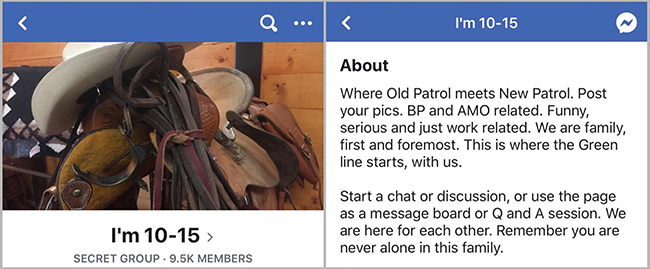Findings
Image


CBP Reduced Proposed Discipline, Allowing Agents Who Committed Misconduct to Continue to Work with Migrants
The Committee's investigation found that 60 agents committed misconduct according to CBP's own disciplinary process. However, CBP reduced proposed disciplinary measures for almost all of these agents, who continue to work with migrants. Read more here.
CBP Removed Only Two CBP Employees for Facebook Misconduct
Of the 24 removals proposed by the CBP Discipline Review Board, CBP ultimately removed only two employees. Twenty proposed removals were reduced to less severe penalties. Eighteen removals were converted to suspensions without pay, one was reduced to a letter of reprimand, and one was reduced to an "oral admonishment." Two agents retired shortly after the Discipline Review Board proposed their removal. Of the 20 agents who continued in their roles at CBP, 18 proposed removals were mitigated by the CBP deciding official and two others were reduced by arbitrators during the appeals process. Read more here.
CBP Suspended 43 Employees for Facebook Misconduct
Of the 60 CBP employees for whom the deciding official substantiated findings of misconduct, records obtained by the Committee show that 43 employees received suspensions without pay. Of those, 41 received suspensions ranging from one to 30 days, with most suspended for five days or fewer. The remaining two agents had their recommended removals mitigated by arbitrators to a suspension of 60 days and time served. The deciding official offered 15 abeyance agreements and entered into last chance agreements with three Border Patrol agents. Read more here.
CBP Sent 12 Letters of Reprimand for Facebook Misconduct
Documents reviewed by the Committee show that of the 12 letters of reprimand, ten were the result of reductions in discipline, including one proposed removal and nine proposed suspensions. Read more here.
Ten Employees Avoided Discipline by Retiring Before CBP Took Corrective Action
Documents show that ten employees announced their retirement during the investigative process, including two Border Patrol agents whom the Discipline Review Board proposed removing. Read more here.
CBP Knew About Agents' Racist and Sexist Postings on the "I'm 10-15" Facebook Group Beginning in August 2016
The Committee obtained a list of thirteen "I'm 10-15" cases that CBP investigated between August 2016 and November 2018. Despite the agency's longstanding knowledge of employee misconduct on the "I'm 10-15" group and other Facebook groups, CBP did not take sufficient disciplinary measures or other action to enforce its social media policies until it faced scrutiny during the summer of 2019. Read more here.
Two Border Patrol Chiefs Were Members of Offensive Facebook Group but Failed to Report Misconduct
Documents obtained by the Committee reveal that two high-ranking CBP officials were members of "I'm 10-15" and took no action to address offensive content posted to the group by CBP agents. Carla Provost served as Border Patrol chief from August 2018 until January 2020, after serving for over a year as the acting chief. Chief Provost became a member of "I'm 10-15" in 2017. Read more here.
CBP Provided Insufficient Social Media Guidance and Training to Agents
Prior to media reports regarding misconduct on "I'm 10-15," CBP provided limited guidance and no training to employees on the use of social media. Read more here.
Weaknesses in the Disciplinary Process Affected CBP's Ability to Hold Agents Accountable
CBP's failure to act sooner to impose discipline on employees after senior leaders became aware of the "I'm 10-15" Facebook group, the lack of agency-specific disciplinary guidelines, and the inconsistent punishments it applied all weakened CBP's ability to hold agents accountable for their misconduct. Read more here.
CBP's Failure to Address Misconduct Erodes Employee Morale
The Committee's investigation confirms reports of longstanding and widespread poor morale at CBP, contributing to a culture that allowed "I'm 10-15" and other Facebook groups to flourish. Case files show that agents repeatedly expressed their frustrations to OPR about a range of issues that contributed to the lack of morale in the agency. Read more here.